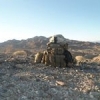Good Afternoon guys, just had a quick question regarding how you personally plan out your games?
I admit I did a fairly short google search, which turned up a lot of company type solutions, and I could see that being used on an individual level, but I was just curious how most people REALLY do it. I know that sounded weird so to elaborate, I mean I could see myself, using something like vizio eventually for a bigger program.
To answer the question "What kind of programs are you working on now?" I'll admit, I've only made Pong, Breakout, and currently still working on Tetris, which has been kicking my ass (but that's my own fault because I know I could have taken the easy way out ( which I'm not saying is bad, due to the KISS principle, but I've been trying to implement as much OOP principles / Programming patterns as I'm learning them just to practice them at the same time)
The problem is to sum it up. I've been doing no planning at all. I've literally just took the one step at a time approach, set a short time goal, implement that feature, on to the next. Then when I'm done with something and I move on to the next, something just randomly clicks and goes, well if I'm doing this I should've just done (something I've already done) this way to make it better.
Then I go back to optimize and I mean I do end up correcting it. I do understand that, this is prolly never going to change regardless, but I would like to lower the amount of times I have to.
What I'm planning on doing is just whiteboarding it, I have one already in the basement that's pretty huge. Or OneNote since I had it preinstalled on my Surface Pro 3. I was just curious if you dealt with this and if so how?
- drew it up on a physical median like a whiteboard, scratchpad,
- some application I don't know about
- winged it, and figure out as you go along
- other












